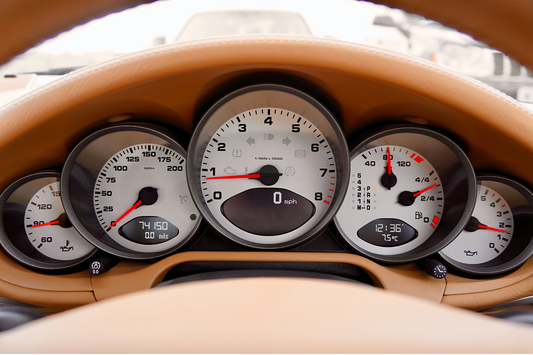When it comes to purchasing a used car, one of the most common concerns is determining how many kilometres are considered "too many." As seasoned automotive experts, we understand the importance of this question and are here to provide you with comprehensive insights to help you make an informed decision. In this article, we delve into various factors that influence the ideal mileage for a used car, dispel common myths, and guide you through the considerations that matter most.
The Mileage Myth
Myth: A car's worth decreases drastically as its mileage increases.
Reality: While mileage certainly plays a role in a car's overall condition, it's not the sole indicator of its value. Modern vehicles are built to withstand higher mileage than their predecessors, thanks to advancements in engineering and manufacturing. What truly matters is how well the car has been maintained and serviced throughout its life.
Understanding Average Mileage
When it comes to determining an acceptable mileage range for a used car, there isn't a one-size-fits-all answer. However, on average, a car is driven around 15,000 to 20,000 kilometres per year. This means that a five-year-old vehicle might have accumulated between 75,000 to 100,000 kilometres. Anything below this range could be considered relatively low mileage, while anything significantly above might raise concerns.
Factors That Matter
Maintenance History
A well-maintained car can easily surpass its expected mileage threshold. Regular oil changes, timely servicing, and addressing issues promptly contribute to a vehicle's longevity. Inspecting maintenance records can provide valuable insights into how the car has been cared for.
Driving Conditions
The type of driving a car has been subjected to matters greatly. A car with 100,000 highway kilometres might be in better shape than one with 70,000 stop-and-go city kilometres. Highway driving typically involves less wear and tear on components like brakes and transmission.
Brand and Model
Different car brands and models have varying reliability and durability levels. Researching the specific make and model's reputation for longevity can guide your decision-making.
Price vs. Mileage
In some cases, a lower mileage vehicle might come with a higher price tag. It's important to weigh the trade-offs between mileage and price. Sometimes, paying slightly more for a lower mileage car could lead to reduced maintenance costs down the road.
Future Plans
Consider how long you intend to keep the car. If you plan to trade it in within a few years, a slightly higher mileage might not be as significant. However, if you're looking for a long-term investment, opting for a lower mileage vehicle might be preferable.
Our Recommendation
Ultimately, there isn't a specific number that can definitively determine whether a used car's mileage is "too many." Rather than fixating solely on the odometer reading, focus on the overall condition and history of the vehicle. Have a trusted mechanic inspect the car, review its maintenance records, and consider the factors mentioned above.
When buying a used car, the emphasis should be on making a well-informed decision based on multiple factors, with mileage being just one of them. The old adage "quality over quantity" holds true here. By considering the car's maintenance, driving conditions, brand reputation, and your own plans, you'll be equipped to make the best choice for your needs.




